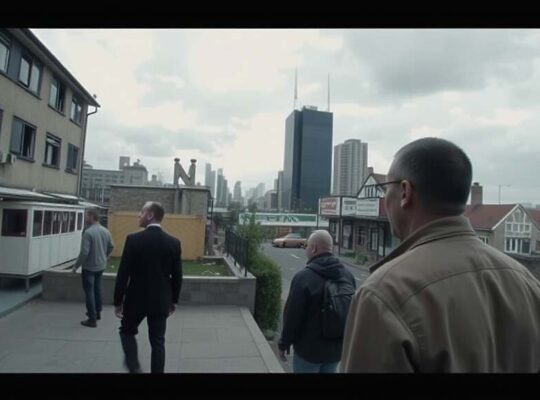The Federal Ministry of Finance, under the leadership of Minister Lars Klingbeil, will continue to utilize armed customs officers for the security of his official residence. This arrangement, involving customs officers providing protective services at the Detlev-Rohwedder-House, was implemented on April 1, 2024, as part of a pilot program potentially lasting up to two years. A review of the program’s effectiveness is planned at a future date.
The shift to customs officers for security occurred under the previous leadership of Christian Lindner. Prior to this, a private security firm had been responsible, a common arrangement within German ministries. Klingbeil’s own party previously criticized the move under Lindner, remarking on the perceived formality associated with the enhanced security. Concerns were raised at the time by parliamentary representatives and trade unions regarding the potential diversion of customs officials from their core duties, such as combating organized crime, given existing staffing shortages.
While customs officers have adapted to their new responsibilities, representatives of employee bodies are now advocating for a more robust legal framework to govern their role. Frank Buckenhofer, regional chair for the customs branch of the Police Union, emphasized that the legal authorities granted to customs officers in this security capacity remain undefined. He noted the reliance on police support in critical situations.
The Ministry of Finance asserts that Klingbeil is prioritizing the fight against tax evasion, shadow work (undeclared work) and financial crime. Collaboration with other government departments is underway to draft legislation aimed at strengthening the Financial Control for Shadow Work (FKS) unit within the customs service, particularly by improving data exchange with other authorities. This aims to elevate the FKS’s effectiveness to a level comparable with other investigative areas.
Buckenhofer acknowledged the proposed legislation as a step in the right direction, but reiterated the need for a stronger, more police-oriented focus and enhanced equipment for the customs service in the fight against criminal activity, differentiating between routine tax collection and the pursuit of sophisticated criminal networks.
Minister Klingbeil also announced plans to extend the retention periods for booking records and invoices from eight to ten years. This measure is intended to prevent the premature destruction of potential evidence in tax proceedings, reversing a previous policy enacted under Lindner as part of broader efforts to reduce bureaucratic burden.












